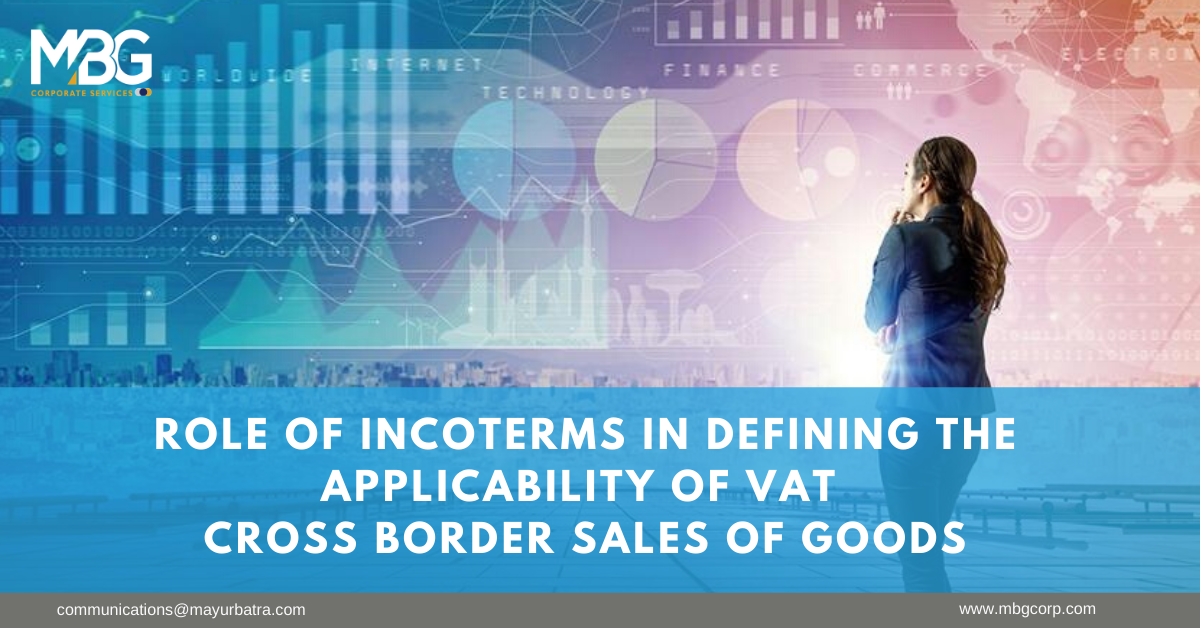Role of Incoterms in defining the applicability of VAT – Cross border sales of goods
February 17, 2020

In the case of Ex Works arrangement of supply, the seller makes the goods available at their premises. EXW means that a buyer incurs the risks for bringing the goods to their final destination. The buyer arranges the pickup of the freight from the supplier’s designated ship site, owns the in-transit freight, and is responsible for clearing the goods through Customs. The buyer is also responsible for completing all the export documentation.
In the case of Delivery Duty Paid arrangement of supply, the seller is responsible for delivering the goods to the named place of the buyer, and pays all costs in bringing the goods to the destination including import duties and VAT. With the delivery at the named place of destination all the risks and responsibilities are transferred to the buyer and it is considered that the seller has completed his obligations.
One of the most difficult areas of providing VAT advice is obtaining sufficient detailed information to advise accurately and comprehensively. Quite often advisers are given what a client believes to be the arrangements for a transaction. This may differ from the actual facts, or the understanding of the other party in the transaction.
Pragmatically, this uncertainty about the details may be increased if; a number of different people within an organization are involved or communication and documentation is less than ideal. In such cases, incoterms will provide invaluable information which gives clarity and certainty and usually give a sound basis on which to advise. This enables the adviser to establish the place of supply (POS) and therefore what VAT treatment needs to be applied.
As per UAE VAT Law, applicability of VAT is to be determined as per the place of supply rules. An area of a Designated Zone will be effectively treated as ‘offshore’ for VAT purposes, i.e. as if it is outside of the territory of the UAE for the purposes of the tax. Since the place of supply for goods generally follows the location of the goods, a supply of goods within a Designated Zone is treated as made outside the UAE.
If supply is made in designated zone, it is an Out of scope transaction i.e. in case of Ex-works Incoterms, the risk and title of goods is transferred in designated zone and hence is out of scope of VAT. In case of supply on DDP basis, the risk and title of goods is transferred when the goods reach mainland and hence it is liable to VAT at Standard rate of 5%. Further, the customer clears the goods on his own TRN and customs number into mainland from designated zone. Hence the VAT on import of goods is pre-populated on the customer’s portal but at the time of import of goods, customer is not the owner of goods in DDP Incoterms and hence adjustments are required to be done in value of imports in VAT return by supplier and customer.
Are you supplying goods from designated zone to mainland and want to have more clarity on VAT & Customs implications on the supply?
Click here to get in touch with our team today to find out all what you need to know!









